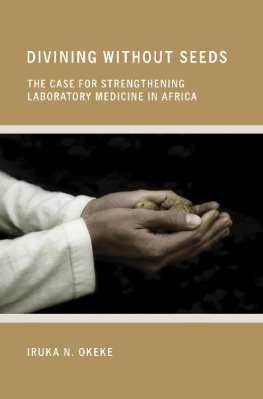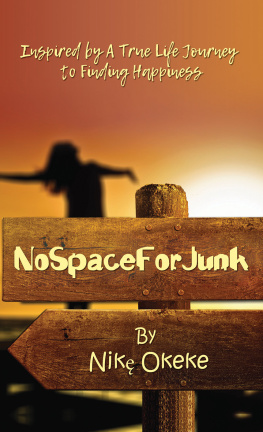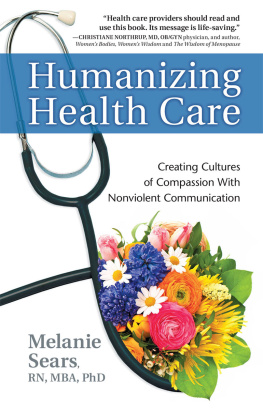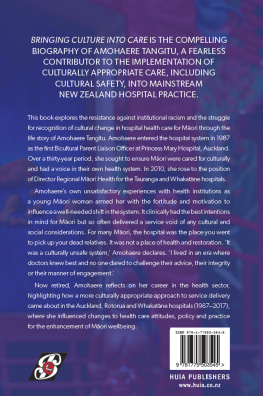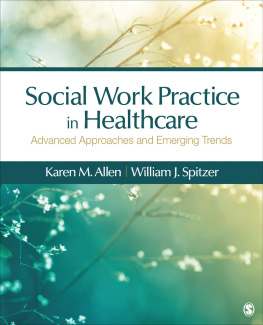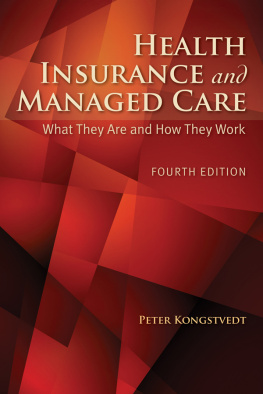DIVINING
WITHOUT
SEEDS
The Case for Strengthening
Laboratory Medicine in Africa
Iruka N. Okeke
ILR Press
an imprint of
CORNELL UNIVERSITY PRESS
ITHACA AND LONDON
For Chiji, Uche, and Ebele
Contents
Preface
Acknowledgments
Abbreviations
Introduction
The Power of Sight
Fever: Is It Malaria?
Fever: Beyond Malaria
Drug Resistance
Viral Hemorrhagic Fevers
Detecting Covert Infection ahead of the Final Diagnosis
Diagnostic Certainty and Disease Control
Origins and Outlook of Diagnostic Insufficiency in Africa
Conclusion: The Feasibility of Laboratory
Diagnosis in African Settings
Notes
Works Cited
Preface
I am privileged to spend much of my time teaching and performing research in one of Americas foremost liberal arts colleges. I work with some of the brightest young students and some of the most talented biologists in the world. Much of my work is molecular biology, and I am amazed at how many times I get asked about the relevance of my work to health, particularly in Africa, where I visit and work very regularly. Nonscientists easily appreciate that there are connections between physics and engineering, and even between chemistry and the pharmaceutical sciences. The applications of biology to conservation science and agriculture or anatomy to medicine are frequently highlighted, but many people underestimate how much and how quickly microbial and molecular biology have changed how we prevent and treat disease. Microbiology, cell pathology, clinical chemistry, and molecular biology make it possible for medicine to deliver todays miracle cures. Unveiling the strong connections between science and modern medicine is a principal objective of this work.
When I completed high school at Queens College, Lagos, in 1985, I would have returned to Europe, the continent of my birth, only if I had not secured admission into one of Nigerias premier universities. By the following year, I was an undergraduate at West Africas premier school of pharmacy and over the next twenty years, first as a student, then as a faculty member and finally as a visiting scientist, I have watched the ivory tower tarnish in the face of structural adjustment at the national level and noticed, in particular, the material decline of science education. By the 1990s, most of the biology papers in the foremost scientific journals, such as Science, Nature, and Cell, were unintelligible to Nigerian graduate students like myself. A few years later, students were blissfully unaware of these deficiencies because libraries could no longer stock the journals.
I was nonetheless privileged to take an elective class in advanced microbial genetics as a graduate student at Obafemi Awolowo University in Nigeria, taught by the late Professor Shonukan. The course introduced me to todays biomedical science, and, in researching my own project on childhood diarrhea in western Nigeria, I was startled to see how little of this new knowledge was being applied to such a pertinent problem. I chose to pursue a multinational program of graduate study and to seek postdoctoral training in molecular science abroad. By the time I had completed my training, I had gained expertise in molecular microbiology that would be invaluable in infectious disease research, but no Nigerian university was then equipped to do this type of science. Furthermore, as a young investigator, I was then ineligible for many international research grants that might have supported me in setting up my own lab.
I reconciled these paradoxes by refusing to choose between categories. Consequently, I am both a Western and a West African scientist. I spend the academic year in the United States but also devote a few weeks each year to working at my alma mater or elsewhere in Africa. Here, too, I work with some of the brightest young students and some of the most talented biologists in the world. African molecular biologists know that we cannot but build capacity in this area. Some are skeptical about feasibility and sustainability but almost everyone seems to understand that we are losing something without it. Although I was initially uncomfortable with my decision to train and then work outside Nigeria, it is easy for me and others to observe that I currently contribute more to African science than I might have done if I had stayed. This is not the pat on the back or assuagement of guilt that it might appear to be. Instead, it is the admission that a bicontinental existence currently contributes more than a full-time scientific employment in Nigeria and that this in itself is a reflection of the many shortfalls of laboratory science in that country and elsewhere. It is not a way of working that I pioneered. I know many other African scientists who have straddled two continents, making the most of the increased networkedness of science today.
Before I pursued graduate training in microbiology, I was a pharmacist at a university health center as well as in an urban secondary care hospital in Nigeria. My scientific research later took me to primary health care centers where I collaborated with doctors, nurse practitioners, and community health workers. The shortfalls in (and often complete dearth of) laboratory science I encountered in the clinic were significantly worse than those I met in education and research, in that they affected peoples lives and health. However, I did not come to consider the true significance of these deficits until a decade later. Before then, as a hospital pharmacist and later a researcher who had a wonderfully close relationship with idealistic physicians, I found it difficult to see how modest investments in laboratory sciences might have greatly assisted us in pursuing our aims. To be entirely frank, we were all so busy that we had no time to think about it.
Thus, although on the one hand it appears somewhat presumptuous for one who does not practice medicine in Africa to criticize diagnostic protocols that help thousands of patients, on the other hand constructive criticism very often comes from the outside. Long after I had transformed myself from a pharmacist to the microbiologist I am now, I realized that laboratory shortfalls did more than just inhibit my own scientific curiosity. The realization came from straightforward and just criticism of one of my own papers. My colleagues and I had written about bacteria that cause diarrhea in one of the few papers that used molecular epidemiology to study the problem in Nigeria. A critique of our paper pointed out that the standard methods we had used to test for nonbacterial parasites were outdated and imprecise. In researching our response to this published critique, I became palpably aware and considerably demoralized by the sheer and overwhelming scope of the diagnostic gaps across sub-Saharan Africa.
In the last six years, as I researched this book, I began to visit other countries in Africa. I was curious to see whether the problem was similar there, as the literature seemed to indicate. My observations, most of them made in admittedly short visits, appeared to suggest that, for the most part, this was indeed the case. I heard the concerns of underresourced health workers, who would have liked to deliver more, and I also spoke with those who work at model sites and fear that what they have might erode. Thus, this story of diagnostic insufficiency is not mine. It is a story of those who are too busy saving lives to tell it themselves. Some are so busy that they have not noticed the story unfold around them and struggle in their attempt to deliver care in the absence of appropriate laboratory services. My combination of a background in science and in health care, proximity to health services in Africa, access to the global medical research literature and nonindexed African periodicals, as well as the time and space to write is unusual. This is my only explanation for why, even though the problem I describe is a pervasive and long-standing one, no one has articulated it cohesively before.

